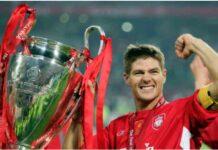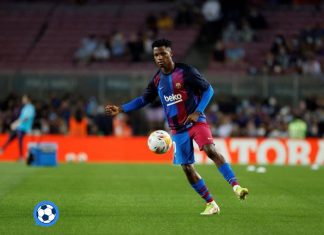
English managers: Jurgen Klopp got the Borussia Dortmund job because he did well at Mainz. Antonio Conte was sought out by Juventus after positive spells at Bari, Atalanta and Siena. Valencia’s door opened for Rafa Benitez because he prospered with Osasuna, Extremadura and Tenerife.
It is only in England where the elite think our league doesn’t count; where a manager can toil away at clubs that have scant chance of success, while all the time being judged for not being successful.
This is why, in one way at least, the managerial change at Chelsea is cause for celebration. The job that Graham Potter has done at Brighton, and to a lesser extent Swansea, has been recognised. By not just moving for the biggest name available — Zinedine Zidane, one imagines — Todd Boehly has done English football a service.
Yes, Thomas Tuchel’s dismissal was harsh. Yet Potter’s appointment is a positive development. Not since Roy Hodgson went to Liverpool in 2010 has an English manager been recognised by a Big Six club for the job he has done outside their environs. And Fulham was Hodgson’s first role in this country since leaving Blackburn in 1998, do not forget.
Tim Sherwood got the Tottenham position from within in 2013 and Frank Lampard also landed the Chelsea job, but that was different. He didn’t fit Roman Abramovich’s usual criteria — foreign — but then he wasn’t appointed by the usual Chelsea.
The club was enduring a two-window transfer ban and the usual candidates would probably have passed on the opportunity. Lampard was young, hungry, a Chelsea legend and loyalist and accepted that this was a chance that might not be repeated. Equally, he believed in giving youth its fling. Chelsea did not possess the trappings of an elite club at the time.
They do now. Boehly has just indulged the most lavish spending spree of any transfer window and Potter inherits its fruits. Depending on player sales there may be more to come. He gets a long-term contract — although so did David Moyes at Manchester United — and the remit to grow together with the new ownership.
It’s a great job. That’s probably why Brighton accepted they could not stand in his way. It would only create rancour, and Potter would leave anyway.
So this is a positive step. If Eddie Howe prospers at Newcastle there could be two English managers in and around the Champions League places.
If they succeed — and remember no English manager has won the Premier League — it might even make coaches from this country fashionable again. At least it affords them the same chance they’d get at Extremadura.
Snubbed Pochettino could become yesterday’s man
What next for Mauricio Pochettino? That’s two major jobs in English football come and gone — three if we include Tottenham last season — for the man it was presumed could return to the Premier League with a click of the fingers.
And while in previous years the timing hasn’t been right, it was long known Pochettino was leaving Paris Saint-Germain at the end of last season.
He could have slipped seamlessly into Manchester United and certainly at Chelsea given his PSG contract was officially terminated on July 5. And it is not just that he has been overlooked, but who he has been overlooked for.
United’s job went to Erik ten Hag, the manager Pochettino ultimately got the better of when Tottenham beat Ajax to reach the Champions League final. More woundingly, Chelsea have preferred Graham Potter, who has done an excellent job at Brighton but lacks Pochettino’s experience at the elite end of European football.
Pochettino ended up as the man Chelsea would approach if the manager of Brighton turned them down. It will not have been how he imagined returning to the English game.
Life moves pretty fast and, if anything, football moves faster. Names that were once on everybody’s lips soon become where-are-they-now material.
Alan Curbishley, once thought of as a potential England manager, took time out of the game after leaving West Ham and never came back as a manager.
Sam Allardyce is now hinting he would return to football but, after more than a year away, how likely is that? Managers depart and a new generation emerges. Nobodies a year ago are now viable candidates.
Pochettino will have been out of English football for three years in November. His departure from Tottenham predates the pandemic. It seems an age. In football, it is.
Bailly must face reality after English bias claims
Eric Bailly says that Manchester United favour English players. This may come as a surprise given that of the 418 starting positions in league matches for the club last season, only 28.7 per cent went to players qualified for England.
So it must be something else that limited Bailly’s league starts to a lowly three. Meanwhile, at Arsenal, Bernd Leno blamed ‘politics’ for losing his place to Aaron Ramsdale — he is now with Fulham — although those who saw his performances may disagree.
Isn’t it peculiar how players concoct all manner of conspiracy theories to explain their absence from the team, rather than turning the camera inwards to look at their own performances or areas for improvement? If the manager is not that into you, it may be an idea to simply consider why.
How Dein came so close to changing the English game
A tantalising thought. Speaking with David Dein this week — his excellent book, Calling The Shots, will be serialised in the Mail — he revealed an early idea that could have changed the narrative of English football entirely.
After Don Howe left Arsenal in 1986, it was Dein’s plan to offer the job to Alex Ferguson — with George Graham as his assistant.
This is before Ferguson left Aberdeen for Manchester United, which happened later that year. Graham was an early front-runner for the Arsenal post but, as Dein said, was inexperienced having only managed at Millwall.
Ferguson, by then, had won the Scottish Premier Division three times with Aberdeen, the European Cup Winners’ Cup, UEFA Super Cup and five domestic cups in Scotland.
While the rest of the board were mulling over Graham — who eventually took the job, with great success — Dein suggested Ferguson with Graham as his No 2. He wasn’t supported.
What might English football look like now if Ferguson had gone to Arsenal? He remains the only Manchester United manager to win the title in 55 years.
Another sliding doors moment? Arsenal were the first club to be offered David Ginola by Paris Saint-Germain, due to Dein’s friendship with technical director Jean-Francois Domergue.
Graham rejected the deal on the grounds Ginola ‘was too good-looking’. Ginola signed for Newcastle for £2.5million, came close to winning the league, then joined Tottenham where he was voted Footballer of the Year in 1999.
‘To this day I don’t know whether George was serious, or just didn’t fancy the competition,’ says Dein.
Comparisons between White and Rooney are specious
When Ellen White retired after winning the European Championship this summer, it at least spared us a ludicrous debate had she gone past Wayne Rooney’s scoring record for England.
There is a fashion now for lumping all achievements together, regardless of gender. Yet England’s women qualifying for the World Cup with an 80-0 scoring aggregate across 10 games, shows how empty it is to confuse the numbers.
But Rooney scored against San Marino, runs the argument. Indeed he did — five of his 53 goals were against them, and three against Kazakhstan. Yet these opponents are outliers in the men’s game. The fact is, no European men’s team will ever play an international qualifying group in which the average score will be 8-0.
San Marino have been England’s qualifying opponents four times. Yet those groups have also included Holland, Poland on three occasions, Norway, Ukraine, Turkey, Hungary and Switzerland. Not many 8-0 walkovers there.
On one occasion, with San Marino in the group, England came third behind Holland and Norway and failed to make the 1994 World Cup. As for 8-0 wins, even in the eight matches against San Marino it has only been achieved or exceeded twice.
So it’s very different, which is why the numbers are different, which is why comparisons are specious. For England, White is the record women’s goalscorer and as her team are the current champions of Europe, it doesn’t need Rooney to make that record great.
Mason punishment marred by inconsistency
It was hugely unfortunate that last weekend a good Huddersfield goal that would have earned a point against Blackpool was denied because of a Hawk-Eye malfunction.
This was, however, an accident. No form of technology can ever be free of the occasional malfunction and that is nobody’s fault.
The calamities that befell West Ham and Newcastle, meanwhile, were human and avoidable. Poor decisions were made and cost both clubs points. So how come only Lee Mason, and not the officials involved in the travesty at the West Ham game, was stood down?
Mason messed up as the VAR of Newcastle and Crystal Palace and action was taken.
Jarred Gillett’s error when West Ham played Chelsea was as bad, if not worse, and he will referee Leicester’s match with Aston Villa, while the referee from that day, Andy Madley, takes charge of Liverpool against Wolves.
Even the punishments are inconsistent with this lot.
European money struggles remain a mystery
Of close to £2billion spent by the Premier League clubs in the summer, only £147million trickled down to the EFL. Of that, 46.2 per cent — £68m — went to one club, Burnley, who will also be bolstered by parachute money.
That Burnley are only fifth right now shows what an unpredictable competition the Championship is.
Yet here’s a greater mystery. A further £637.65m was exchanged between Premier League clubs, but that still leaves £1.115bn finding its way to leagues abroad. So why are those markets so deflated?
That’s a lot of English trickle. A significant amount should be passed on in the domestic leagues of Europe which, with the exception of a few clubs, remain dormant financially.
There is a lot of ire directed at English club owners but, in the Premier League, it is easy to see where the money goes: on transfer fees, on wages, on financing new and improved contracts.
What happens to it in Europe, in those leagues where we are told fans have the big say? If it comes in one door, it certainly doesn’t go out the other.
Read More…
















